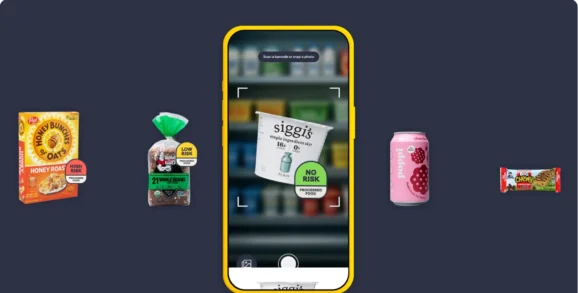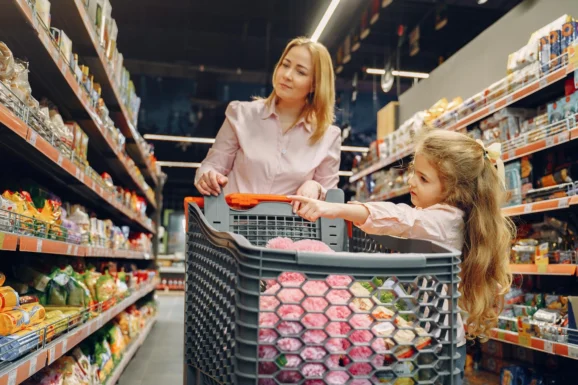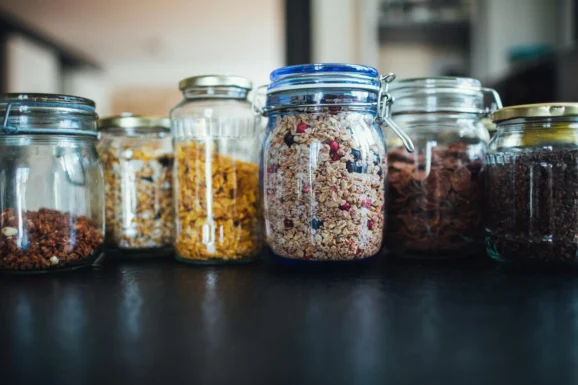New app reveals hidden health risks in everyday foods

John E. Kaye
- Published
- Technology

It looks healthy. The label says “high protein”, “low fat”, maybe even “natural”. But what’s really inside?
A new app launched this week claims to lift the lid on misleading food packaging by showing how industrial processing — not just ingredients — could be damaging your health.
Developed by British nutrition company ZOE, the tool uses artificial intelligence to scan supermarket items and assess the health risks linked to how they’ve been made.
Users take a photo of any packaged food and receive an instant risk rating — from “No Risk” to “Highest Risk” — based on how it was created, not just what it claims on the front of the pack.
It means a protein bar labelled ‘natural’ or ‘low fat’ may be marked by the app as “High Risk” if it contains industrial additives or has been heavily processed.
By contrast, something like plain dried fruit — often assumed to be unhealthy due to its sugar content — could receive a lower risk rating if it contains no additives and has undergone minimal processing.

A basic wholemeal loaf with few ingredients and no artificial preservatives might also score well, despite making no health claims on the packaging.
Rather than looking at calories, sugar or fat, the app analyses the type and degree of processing — including additives, sweeteners, chemical treatments and mechanical methods used during production.
Each product is placed on ZOE’s new Risk Scale for Processed Food, which ranks items across five levels: Unprocessed, No Risk, Low Risk, Medium Risk, and Highest Risk.
Professor Tim Spector, co-founder of ZOE and a leading expert in personalised nutrition, said the goal was to give consumers straightforward information backed by science.
“Everyone wants to eat well to live more healthy years, but most people don’t know where to turn for good advice,” he said.

“We are surrounded by conflicting messages, both online and from food marketers. People are crying out for clarity, which is why ZOE created the Risk Scale for Processed Food. Based on the latest evidence and scientific research, it cuts through the noise, helping people see through empty health claims and confusing labelling.
“Now, the public can quickly and easily understand the genuine health risks associated with food products and make sensible choices.”
The app is powered by a database of over one million food products, developed through ZOE’s clinical nutrition research. It flags ingredients and processes linked to long-term health risks, including obesity, type 2 diabetes and heart disease.
Jonathan Wolf, ZOE’s co-founder and chief executive, said the tool was designed in response to widespread public confusion.
“Big Food bombards shoppers with health claims,” he said. With our new free app we’re giving everyone the power to discover what’s really in their food – with an effortless camera click – based on science, not marketing

Polling carried out by ZOE found that 76% of American consumers think nutritional advice is contradictory. Nearly half said they didn’t always know what was healthy when shopping, and one in four said they didn’t trust food labels.
Sixty-one per cent of those surveyed believed products labelled “high protein” were good for them, and 44% said the same of “low fat” items.
ZOE said the app is also intended for people who may not have access to fresh or unprocessed foods. “It’s designed to help users make informed decisions — even when shopping options are limited,” the company said in a statement.
The tool forms part of ZOE’s broader mission to change the way people think about food and health. The company runs a podcast on nutrition science, offers personalised dietary advice, and promotes its “Daily30+” diet encouraging people to eat 30 different plant foods a week.
ZOE was co-founded by Professor Spector of King’s College London and entrepreneur Jonathan Wolf. It is based in London and Boston.
Photos: Zoe/Pexels
RECENT ARTICLES
-
 AI-driven phishing surges 204% as firms face a malicious email every 19 seconds
AI-driven phishing surges 204% as firms face a malicious email every 19 seconds -
 Deepfake celebrity ads drive new wave of investment scams
Deepfake celebrity ads drive new wave of investment scams -
 Europe eyes Australia-style social media crackdown for children
Europe eyes Australia-style social media crackdown for children -
 Europe opens NanoIC pilot line to design the computer chips of the 2030s
Europe opens NanoIC pilot line to design the computer chips of the 2030s -
 Building the materials of tomorrow one atom at a time: fiction or reality?
Building the materials of tomorrow one atom at a time: fiction or reality? -
 Universe ‘should be thicker than this’, say scientists after biggest sky survey ever
Universe ‘should be thicker than this’, say scientists after biggest sky survey ever -
 Lasers finally unlock mystery of Charles Darwin’s specimen jars
Lasers finally unlock mystery of Charles Darwin’s specimen jars -
 Women, science and the price of integrity
Women, science and the price of integrity -
 Meet the AI-powered robot that can sort, load and run your laundry on its own
Meet the AI-powered robot that can sort, load and run your laundry on its own -
 UK organisations still falling short on GDPR compliance, benchmark report finds
UK organisations still falling short on GDPR compliance, benchmark report finds -
 A practical playbook for securing mission-critical information
A practical playbook for securing mission-critical information -
 Cracking open the black box: why AI-powered cybersecurity still needs human eyes
Cracking open the black box: why AI-powered cybersecurity still needs human eyes -
 Tech addiction: the hidden cybersecurity threat
Tech addiction: the hidden cybersecurity threat -
 Parliament invites cyber experts to give evidence on new UK cyber security bill
Parliament invites cyber experts to give evidence on new UK cyber security bill -
 ISF warns geopolitics will be the defining cybersecurity risk of 2026
ISF warns geopolitics will be the defining cybersecurity risk of 2026 -
 AI boom triggers new wave of data-centre investment across Europe
AI boom triggers new wave of data-centre investment across Europe -
 Make boards legally liable for cyber attacks, security chief warns
Make boards legally liable for cyber attacks, security chief warns -
 AI innovation linked to a shrinking share of income for European workers
AI innovation linked to a shrinking share of income for European workers -
 Europe emphasises AI governance as North America moves faster towards autonomy, Digitate research shows
Europe emphasises AI governance as North America moves faster towards autonomy, Digitate research shows -
 Surgeons just changed medicine forever using hotel internet connection
Surgeons just changed medicine forever using hotel internet connection -
 Curium’s expansion into transformative therapy offers fresh hope against cancer
Curium’s expansion into transformative therapy offers fresh hope against cancer -
 What to consider before going all in on AI-driven email security
What to consider before going all in on AI-driven email security -
 GrayMatter Robotics opens 100,000-sq-ft AI robotics innovation centre in California
GrayMatter Robotics opens 100,000-sq-ft AI robotics innovation centre in California -
 The silent deal-killer: why cyber due diligence is non-negotiable in M&As
The silent deal-killer: why cyber due diligence is non-negotiable in M&As -
 South African students develop tech concept to tackle hunger using AI and blockchain
South African students develop tech concept to tackle hunger using AI and blockchain



























